
13 books billionaire Bill Gates thinks you should read this summer to help you survive coronavirus lockdown
- All 13 offer both distractions and important lessons for coping with the Covid-19 crisis, with comic books some of Gates’ recommendations
- Books range from a Holocaust survivor’s memoir to the 1918 influenza pandemic to improving your memory
When Bill Gates isn’t working with pharmaceutical companies to develop drugs and vaccines for the coronavirus, he is an avid reader.
“Most of my conversations and meetings these days are about Covid-19 and how we can stem the tide,” the billionaire recently wrote on his blog, Gates Notes.
“But I’m also often asked about what I am reading and watching – either because people want to learn more about pandemics, or because they are looking for a distraction.”
Gates’ summer reading list for 2020 offers both distractions and important lessons for coping with the crisis. In addition to his typical five summer book recommendations, the Microsoft founder recommended eight additional titles this year – including a few comic books.
1. The Choice, by Dr Edith Eva Edgar
Dr Eger was sent to Nazi Germany’s Auschwitz concentration camp in Poland with her family at age 16. Her book details her battle with survivor’s guilt – and learning to forgive herself – after her parents were killed during the war.
Gates defines the book as “partly a memoir and partly a guide to processing trauma”. He wrote: “I think many people will find comfort right now from her suggestions on how to handle difficult situations.”
2. The Ride of a Lifetime, by Robert Iger
Iger’s memoir gives an inside look at his experience as CEO of The Walt Disney Company from 2005 to 2020. He shares his four leadership principles – optimism, courage, decisiveness and fairness – and his strategy for turning Disney into the largest media company in the world.
He also offers anecdotes about his friendship with Steve Jobs and his Star Wars obsession. According to Gates, it’s “one of the best business books I’ve read in several years”.
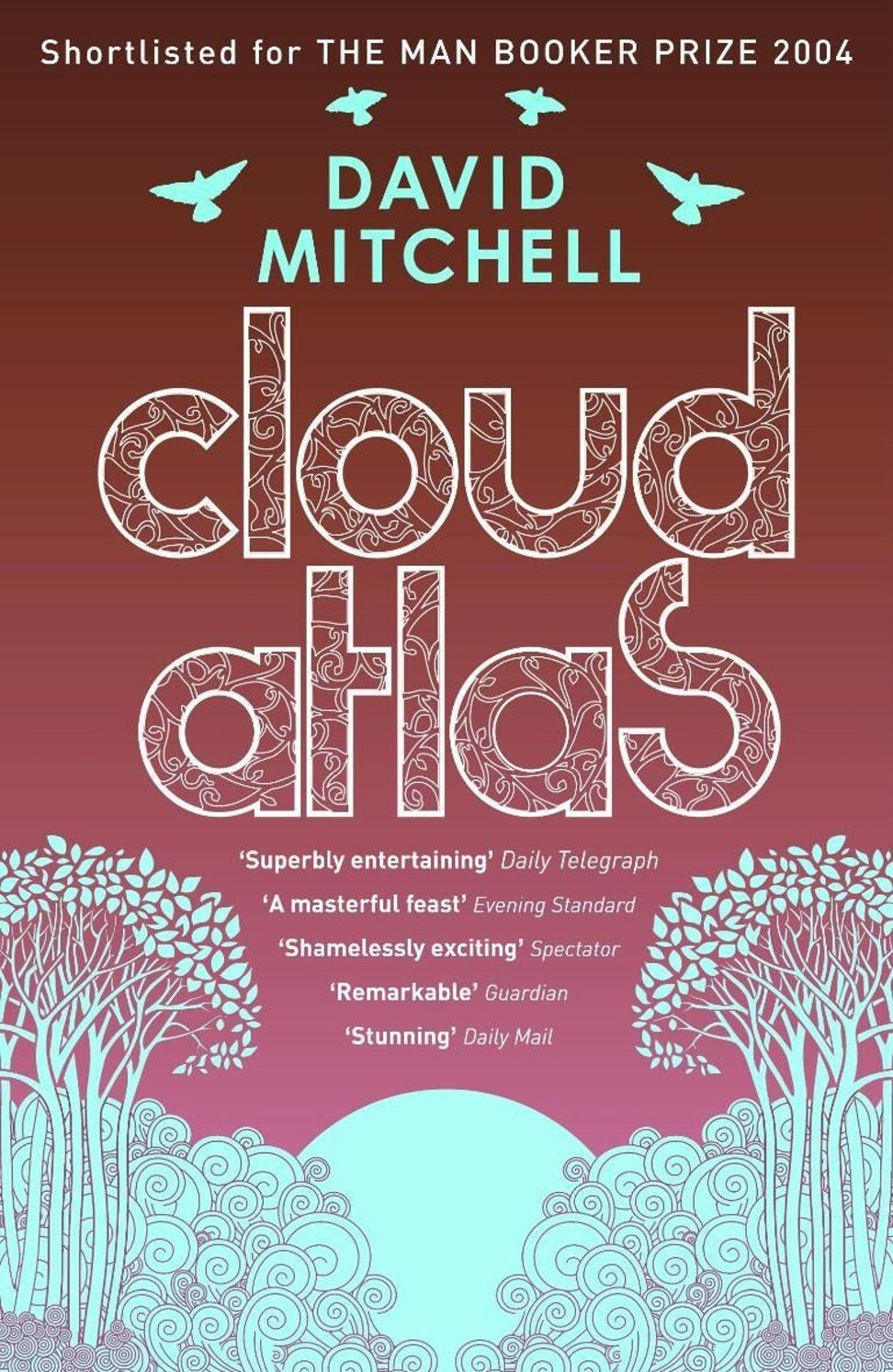
3. Cloud Atlas, by David Mitchell
When Gates started reading Cloud Atlas last year, he wrote that it was “amazingly clever but a bit hard to follow”. Now that he is done, he describes it as “the kind of novel you’ll think and talk about for a long time after you finish it”.
The book begins in New Zealand’s Chatham Isles in 1850, flashes forward to Belgium in 1931, then sharply transitions to the West Coast in the 1970s – all before jumping back to the place where it started. The novel was first published in 2004, then adapted into a movie starring Tom Hanks in 2012.
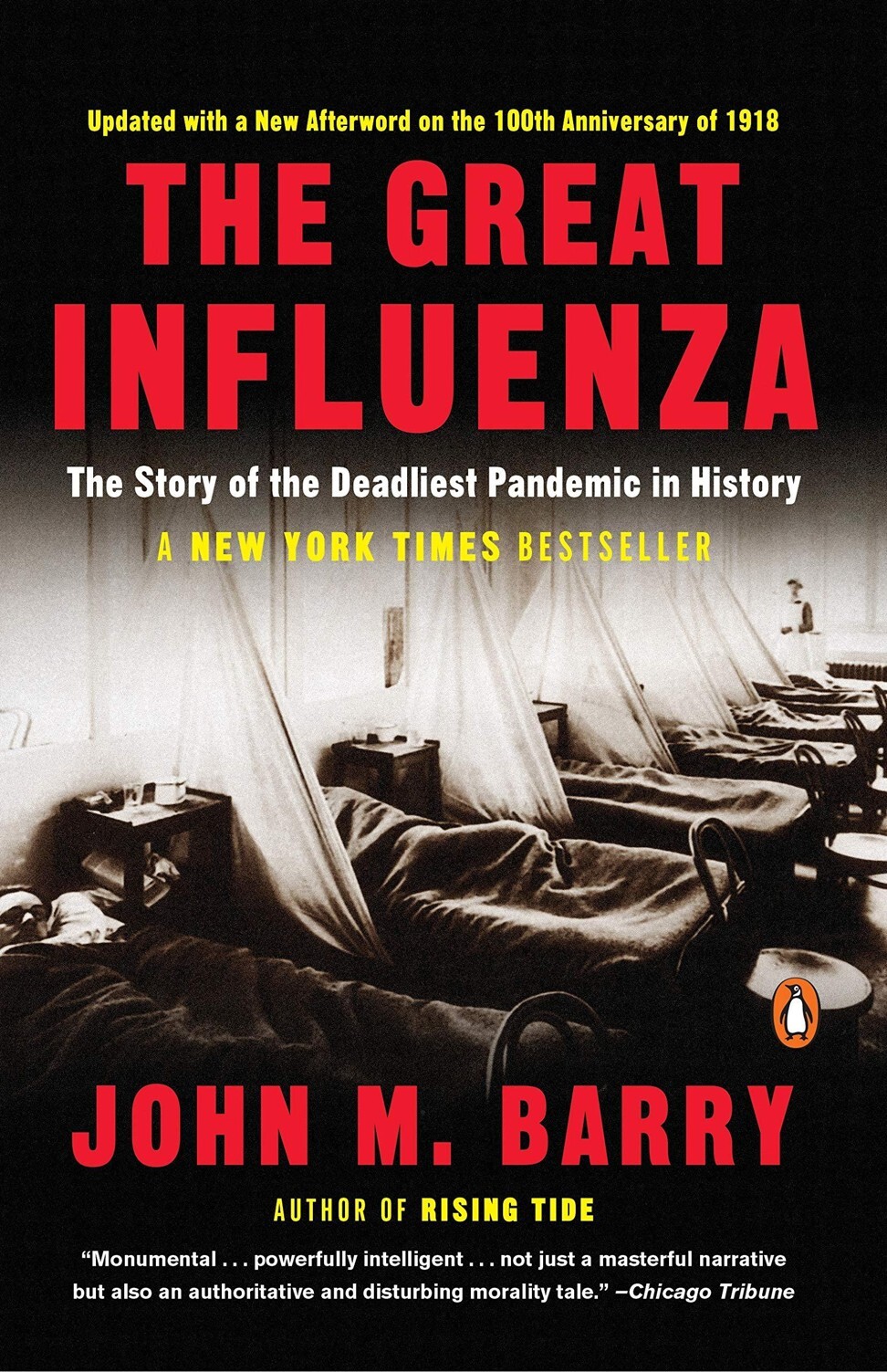
4. The Great Influenza, by John M. Barry
The current pandemic bears many striking similarities to the 1918 flu – the subject of John Barry’s 2004 non-fiction book.
“If you’re looking for a historical comparison, the 1918 influenza pandemic is as close as you’re going to get,” Gates wrote on his blog. “The Great Influenza is a good reminder that we’re still dealing with many of the same challenges.”
Barry’s book also offers lessons on how to respond to viral outbreaks.
5. Good Economies for Hard Times, by Abhijit Banerjee and Esther Duflo
Gates calls Banerjee and Duflo “two of the smartest economists working today”. They won the Nobel Memorial Prize in Economic Sciences in 2019. Their book offers solutions to critical economic questions like whether international trade works for everyone, or whether immigrants from poorer countries take jobs away from low-income native workers.
According to Gates, the authors are “very good at making economics accessible to the average person”.
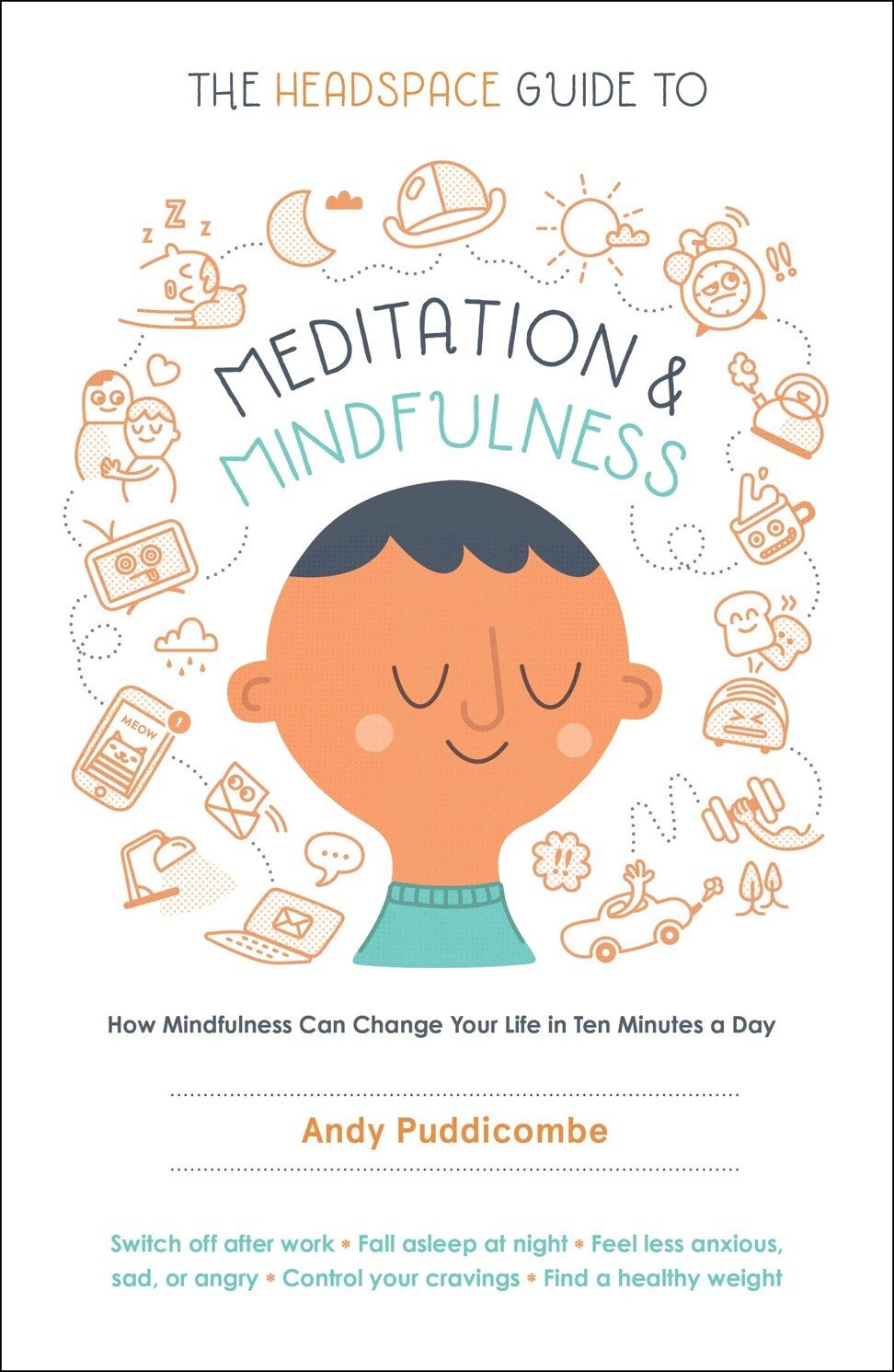
6. The Headspace Guide to Meditation and Mindfulness, by Andy Puddicombe
Puddicombe is an ordained Buddhist monk who went on to co-found Headspace, a popular meditation app featuring guided practices, animations, articles and videos.
Gates refers to Puddicombe as “the person who turned me from sceptic to believer”. He even asked Puddicombe to spend a day and a half walking his family through meditation exercises.
“Now that I’m married, have three children, and have a broader set of professional and personal interests, it’s a great tool for improving my focus,” Gates wrote.
7. Moonwalking with Einstein, by Joshua Foer
In 2006 Foer won the USA Memory Championship, a tournament that asks participants to memorise numbers, names, faces and more. His book details his experience working with “mental athletes”, who helped train his mind to quickly recall facts.
“If you’re looking to work on a new skill, you could do worse than learning to memorise things,” Gates wrote on his blog.
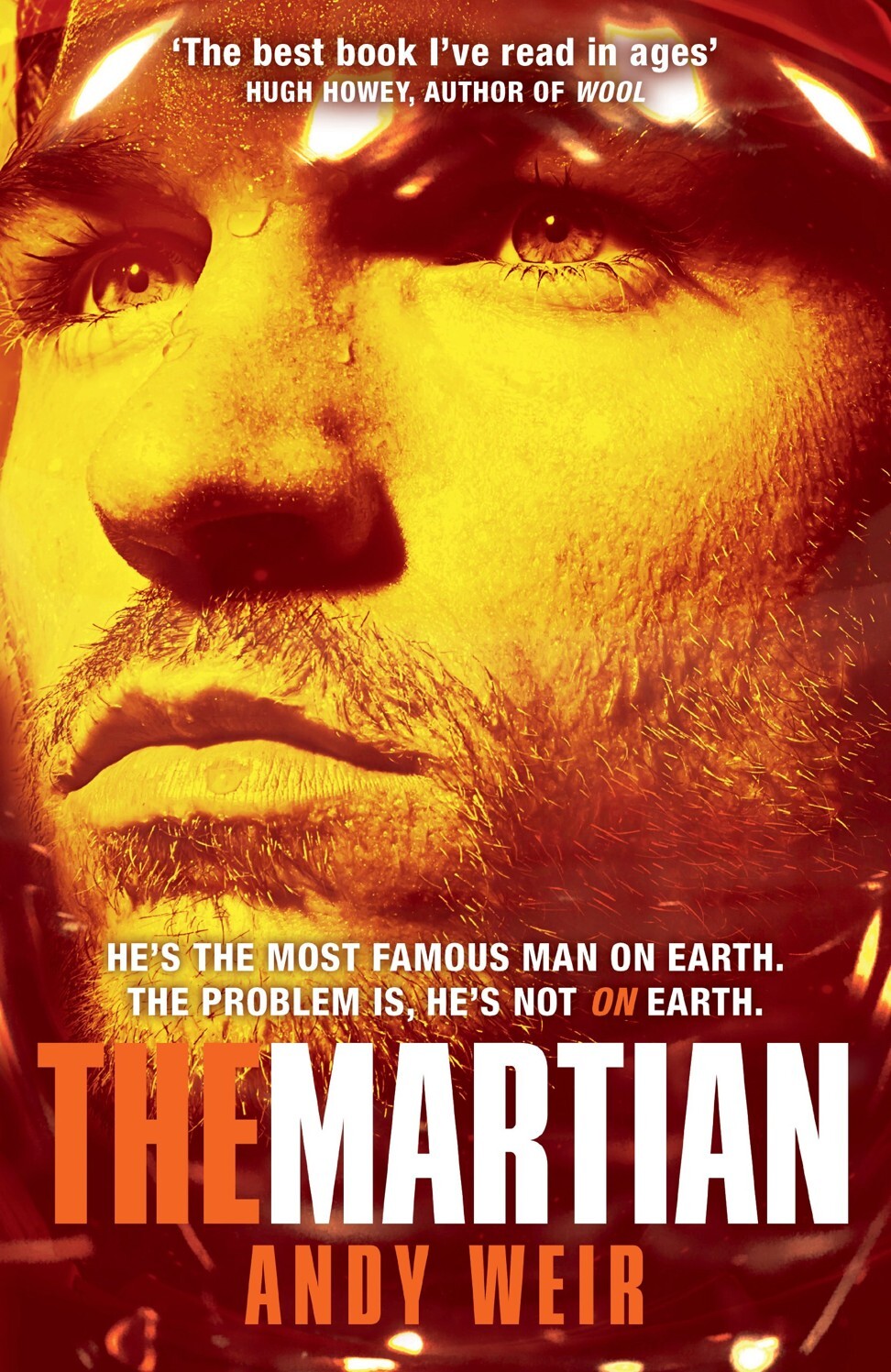
8. The Martian, by Andy Weir
This 2011 science fiction novel was turned into a film in 2015. Gates said there’s a connection between the movie and the current pandemic.
“Matt Damon – playing a botanist who’s been stranded on Mars – sets aside his fear and says, ‘I’m going to science the s*** out of this,’” Gates wrote. “We’re doing the same thing with the novel coronavirus.”
9. A Gentleman in Moscow, by Amor Towles
A Gentleman in Moscow is fiction, but it draws much of its inspiration from historical events. The book tells the story of a Russian count who is sentenced to house arrest after the Bolshevik Revolution.
Gates said he and his wife, Melinda, pored over the title at the same time. He added that he teared up at one of the plot lines while he was a few chapters ahead of Melinda, tipping her off that something bad was about to happen.
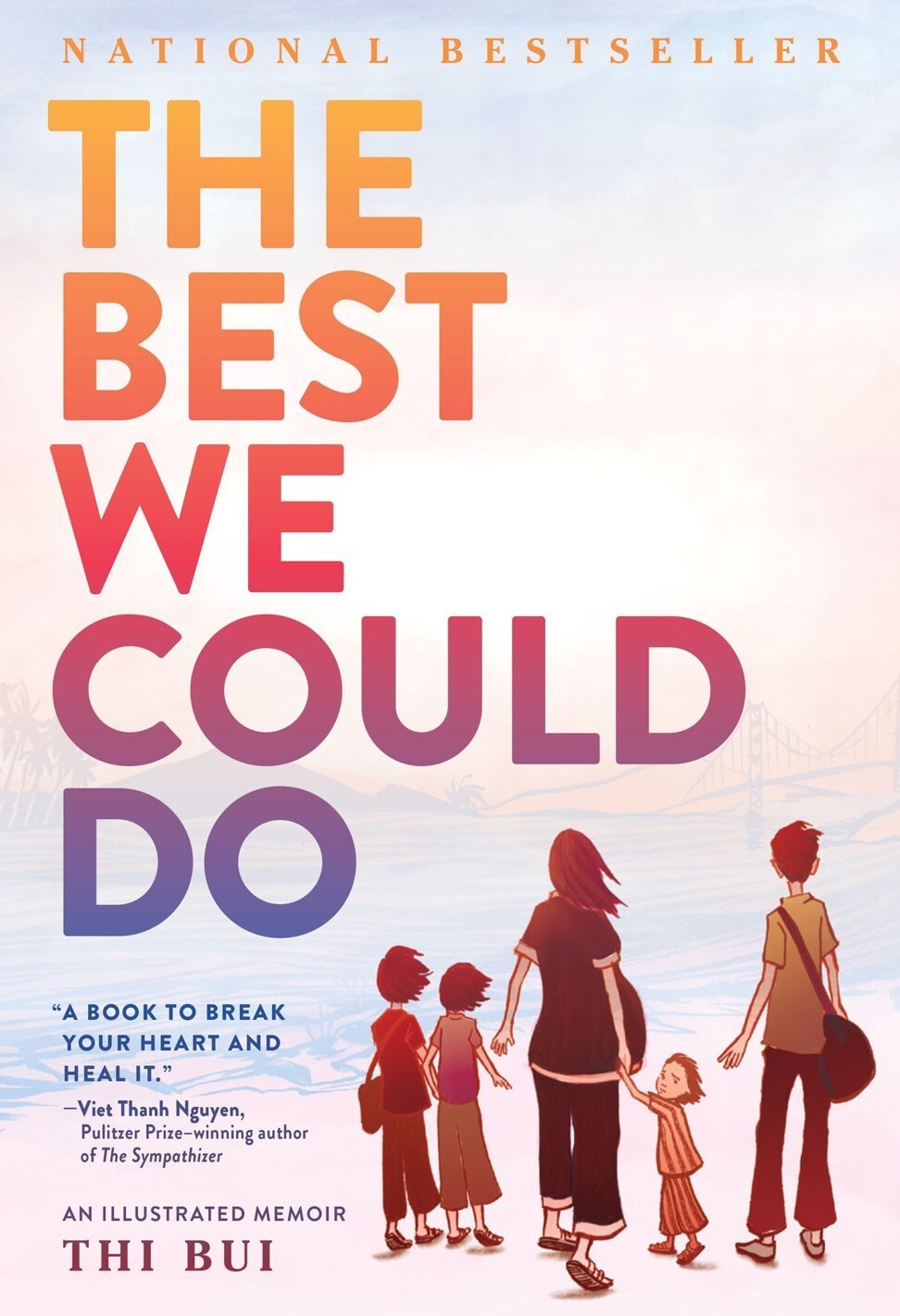
10. The Best We Could Do, by Thi Bui
Gates said he usually did not read comics or graphic novels, but he is a fan of Bui’s illustrated memoir, which tells of her family’s escape from war-torn Vietnam in the 1970s.
“It’s a deeply personal book that explores what it means to be a parent and a refugee,” Gates wrote. The visuals, he adds, are “striking”.
11. The Rosie Trilogy, by Graeme Simsion
Gates is long-term fan of Simsion’s work. This trilogy follows the life of Don Tillman, a genetics professor with Asperger’s syndrome. Gates sent the first book, The Rosie Project, to about 50 friends. The second book, The Rosie Effect, taught the billionaire a lesson about relationships. Gates recommended the third and final instalment, The Rosie Result, last year.
“In the back of the mind, you’re thinking about the relationships you have,” Gates said in a conversation with Simsion, which he documented on Gates Notes. “You get to laugh, but you also get to think, ‘Hey, some people are good at this stuff naturally. And some people are good at this stuff because they put the energy in.’”
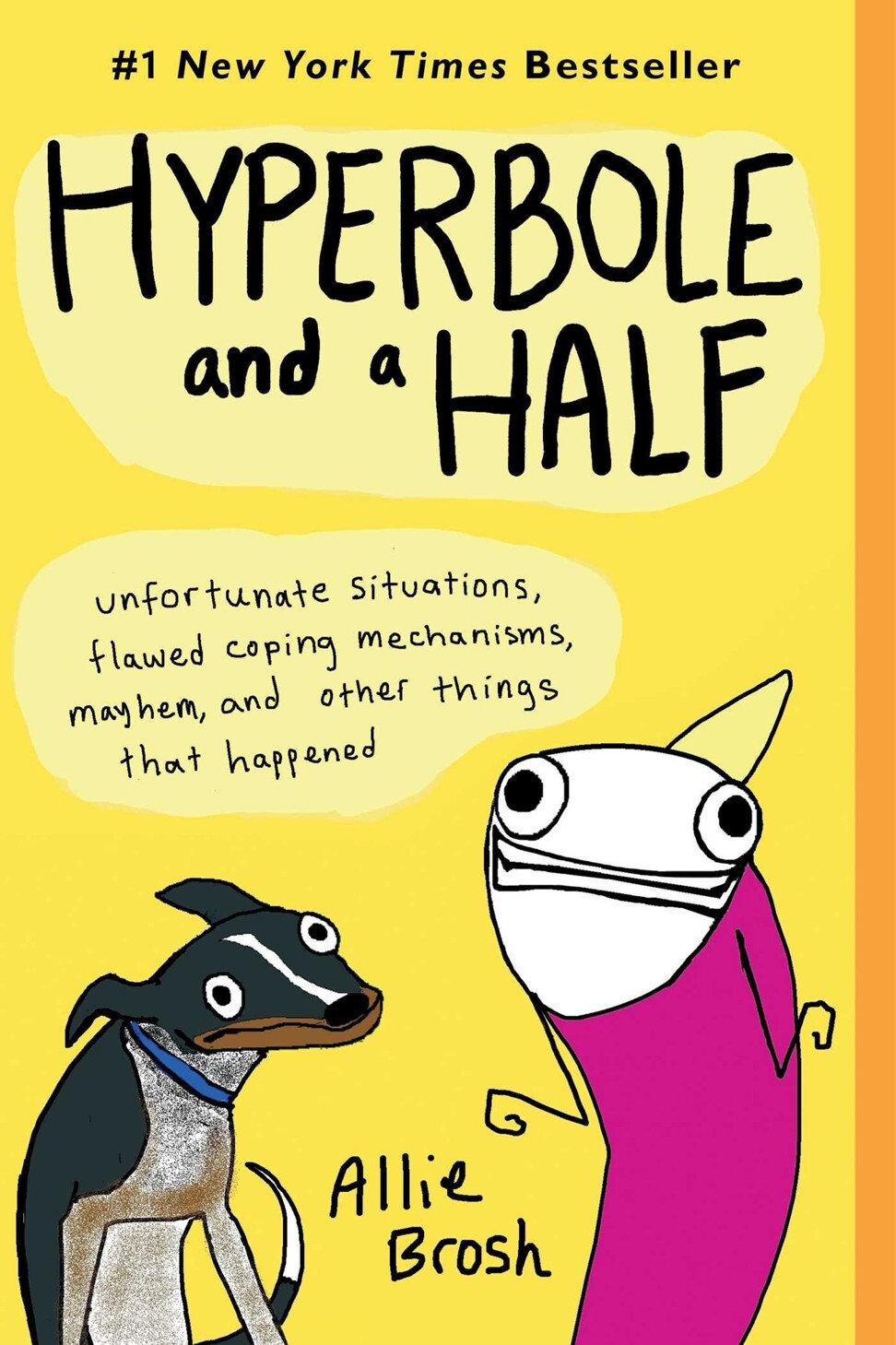
12. Hyperbole and a Half, by Allie Brosh
“You will rip through it in three hours, tops,” Gates wrote of the book. “But you’ll wish it went on longer, because it’s funny and smart as hell. I must have read Melinda a dozen hilarious passages out loud.”
The novel is part comic, part blog-style essays that draw from the author’s life in rural Idaho state in the US and struggles as an adult. Throughout the book, Brosh is depicted as a stick figure in a pink dress.
“It takes a few hours trying to get it right,” she told US magazine Mother Jones of her sketches. “I don’t have any reference material for this creature that I’ve made to represent myself, aside from what’s in my head.”
13. What If?, by Randall Munroe
Monroe, a former Nasa engineer, uses stick figure drawings to discuss major topics such as science, technology and language. What If? answers absurd questions – like how long humanity would last in a robot apocalypse – and slightly realistic ones, like how fast you could reasonably drive over a speed bump and still live.
In the future, Gates wrote, he plans to tackle the author’s latest book, How To: Absurd Scientific Advice for Common Real-World Problems.

